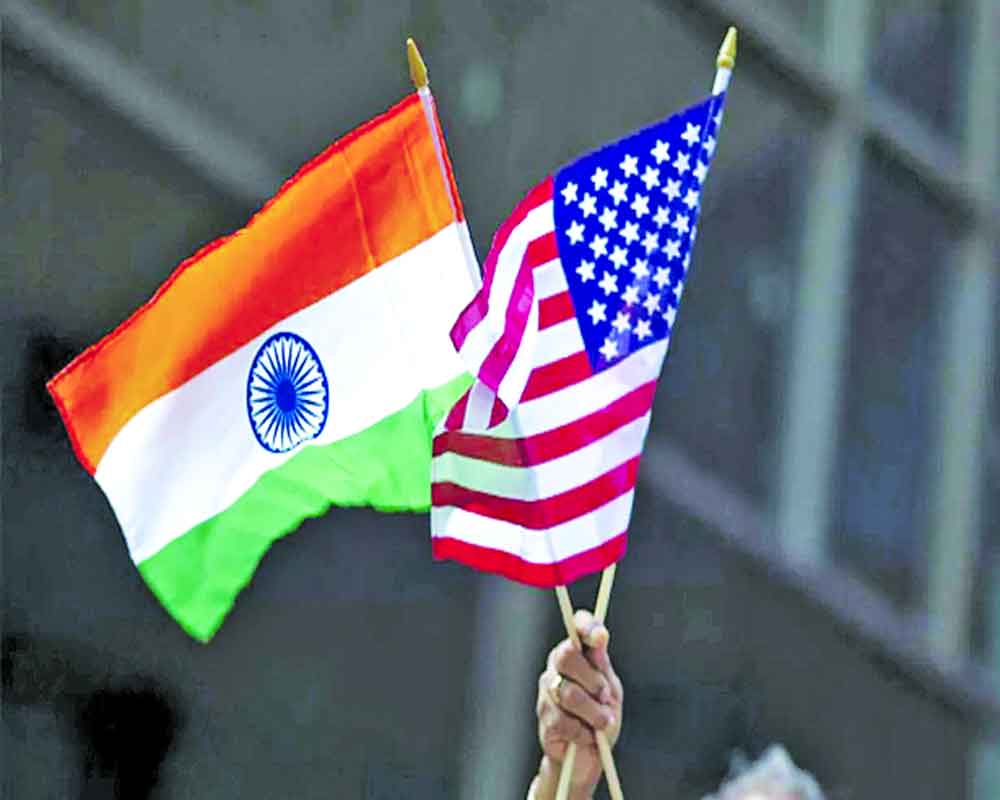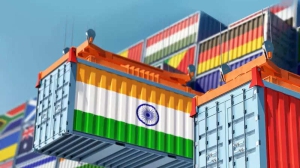With influencial Indian Diaspora, Indian point of view gets more pronounced in the policy decisions in the US. India is not complaining
Bipartisan pressure groups are not unknown in democracies, as the personal backgrounds or similarly held beliefs and concerns, can cut across partisan lines. These formal or informal caucuses are a novel way of protecting rights of/ against a specific community, group, or sovereign. American Israel Public Affairs Committee (AIPAC) is a powerful pro-Israeli and bipartisan lobbying group with a ‘vast pool of donors’ that seeks to protect Israeli-Jewish interests in the legislative and executive branches of the United States. Similarly, the much-bandied ‘Squad’ (initially with 4 women elected to the US House of Representative, now joined by another 4) is a informal ‘progressive/left wing’ caucus of young senators, albeit from Democratic ranks only, who are especially keen to push their generational agenda like Medicare for All, New Green Deal etc.
With approx. 4.5 million people or 1.4% of the total US population, the Indian diaspora of Indian-Americans pays 6% of the total national taxes! As amongst the highest-earning ethnic group with seamless integration into the ‘American Dream’ without railing emotions that are typically afforded on other immigrant groups like those from Hispanic, African, or Middle Eastern countries — the memories of infamous
If anything, churn of global geopolitics has ensured that India emerges pivotal to US foreign policy interests and be an indispensable and naturally strategic partner. Growing jointsmanship of sealing their strategic concerns and interests in initiatives like QUAD (Quadrilateral agreement of US, India, Australia and Japan), affording military wares, technology and access, preferential economic treatment and batting on behalf of each other in multilateral platforms like UN etc., is symptomatic India’s leverage in the sustenance of the ‘Free World’. It is a mutual trust that overcomes occasional friction points, as India’s strategic autonomy often leads to it practicing its own dynamics and equations with allies like Russia, Iran etc., to the frequent queasiness of Washington DC, just as US’s continuing support like tactical spares for Pakistan’s F-16 fighters (implausibly for
‘anti-terrorism’), riles up Delhi.
But like all participative democracies, internal (political) and even ostensibly moral concerns can pit the leaderships of two countries in awkward positions of having to take a stand against each other, or at least disallowing any preferential/ lenient treatment, onto each other. This necessitates compelling pressure groups within the corridors-of-powers in Washington DC and Delhi That can cut across the partisan divide and address the temporary impasse. Today, the US House of Representatives hosts a record five Indian-Americans, as also several in the State legislatures. It is a considerable distance covered since the special commission established by the U.S. Congress whose 1911 report declared that Hindus were “universally regarded as the least desirable race of immigrants thus far admitted to the United States.†How the Indian Americans choose to deploy their influential numbers in the corridors of power, remains an open question. They could be effectively neutral e.g., Vice President Kamala Harris, they could regrettably seek to downplay their Indianness a la Bobby Jindal, or hopefully form a pressure group that bats on behalf
of the land of their ancestors, as done by most ethnicities, as an emotional commitment.
Subramanian Raja Krishnamoorthi, the U.S. representative for Illinois's 8th Congressional district coined the term ‘Samosa Caucus’ to define the growing numbers of desi Indian-American lawmakers community. Besides Raja, others include Ro Khanna, Pramila Jaipal, Shri Thanedar and Ami Bera, all from Democrat ranks. Krishnamoorthy has certainly been one of the most enthusiastic supporters of robust relations with India, and even if ‘Samosa Caucus’ is not a formal caucus as such, the denominational affinity makes outreach to the US Congress, more accessible. Ro Khanna echoed, “Representation is crucial to serving Indian American communities and working to strengthen America's defense and strategic partnership with Indiaâ€, just as Krishnamoorthy promised to, “address the key issues facing our community, including high-skilled immigration reform and strengthening the partnership between the US and India.â€
All 5 from the current ‘Samosa Caucus’ are Democrats and with Joe Biden Presidentship, it is perhaps the more useful partisan identity – but for this caucus to be truly meaningful, it needs to be bipartisan, in the long run. While Indian Americans tend to historically gravitate towards Democrats, the Republican regimes have always been more accommodative and responsive towards India’s strategic concerns, including that of Donald Trump’s. Taking a leaf out of the Jewish-Israeli AIPAC, the idea besetting the ‘Samosa Caucus’ must have far wider, deeper, and diverse entrenchment in American politics. Seemingly, the Indian party with the ‘Samosa Caucus’ has just begun.
(The writer, a military veteran, is a former Lt Governor of Andaman & Nicobar Islands and Puducherry. The views expressed are personal.)


























